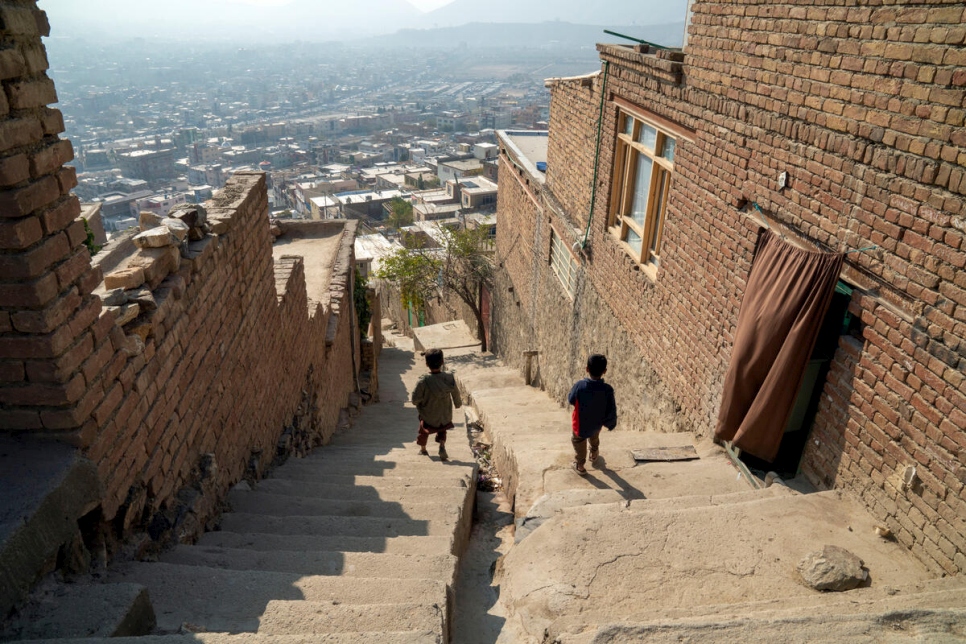
As Afghanistan faces one of the world’s largest and most severe humanitarian crises, millions of Afghans are looking to the international community for support. © UNHCR/Oxygen Film Studio (AFG)
UNHCR, the UN Refugee Agency and humanitarian partners have today launched a response plan to support 7.9 million people: 5.2 million Afghans – including refugees, as well as 2.7 million of their local host communities, across the region.
The Regional Refugee Response Plan for the Afghanistan Situation 2023 seeks USD 613 million in funding, to support Afghans who are sheltering in five neighbouring countries – Iran, Pakistan, Tajikistan, Turkmenistan and Uzbekistan.
These countries are host to some 8.2 million Afghans, including over 2 million registered refugees. Many have been hosted in the region for decades, mostly in the Islamic Republics of Iran and Pakistan. The two countries – with others, have generously accommodated Afghans in many of their public services at great cost, while an estimated 1.6 million have arrived in the region since 2021.
Over 70% of those in need of support are women and children.
While this response plan aims to provide support for Afghans displaced outside the country and the public infrastructure that serves them, a separate UN-wide plan has also been launched to respond to humanitarian needs inside Afghanistan. That plan seeks $4.62 billion to support some 23.7 million Afghans during 2023.
Afghanistan is one of the world’s largest and most severe humanitarian crises. A record 28.3 million people – some two-thirds of the population, including more than 11.6 million women and girls – require humanitarian and protection assistance. Humanitarian needs have been further exacerbated by recent restrictions on women including the inability of female Afghan NGO staff to work.
The UN and its partners are appealing to the international community to not shut the door on the people of Afghanistan. The international community cannot afford to neglect the Afghan people.
Humanitarian partners remain on the ground, and they are delivering assistance and protection both inside Afghanistan and in the region, despite the challenges.
Millions of Afghans are looking to the international community for support, and to their country’s interim leaders for peace, security, and opportunity.Financial support remains critical to scale up to stave off wide-spread hunger, disease, malnutrition and ultimately death by supporting the joint humanitarian plans being launched.
A similar funding appeal for 2022 was only 52 per cent funded, with USD 321 million received of USD 623 million requirements.
Despite the funding crunch, UNHCR and partners were able to support millions of Afghans and their hosts in the neighbouring countries. Vital humanitarian work resulted in further access to healthcare, primary and secondary education, financial assistance and improvements in water supply systems.
ENDS
Share on Facebook Share on Twitter